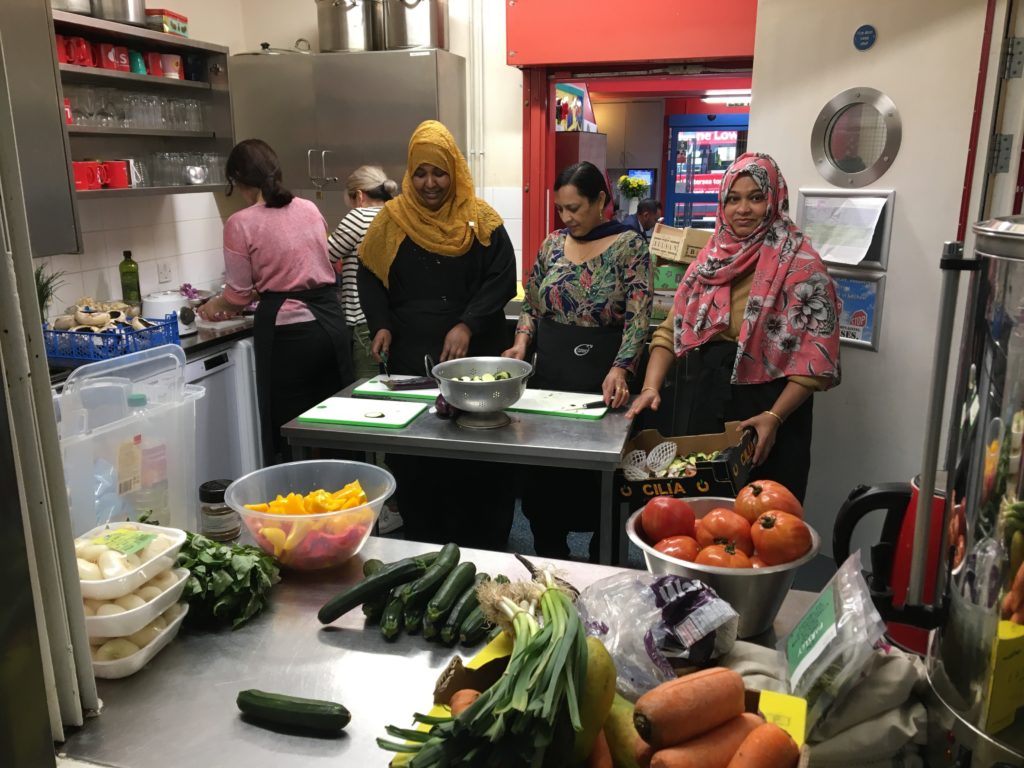One year on: ESOL (English) programme annual report 2019-20
Thanks to support from the National Lottery Community Fund and Wandsworth Council’s Lifelong Learning Department Katherine Low Settlement has been providing free English for Speakers of Other Languages (ESOL) courses for migrant and refugee communities in Wandsworth, over the last academic year (September 2019 – July 2020). A service we’ve provided since 1999. This enables our students to improve their English literacy and language across the four skills of speaking, listening, reading and writing.
This is a short report about what our ESOL team has achieved over the last academic year.
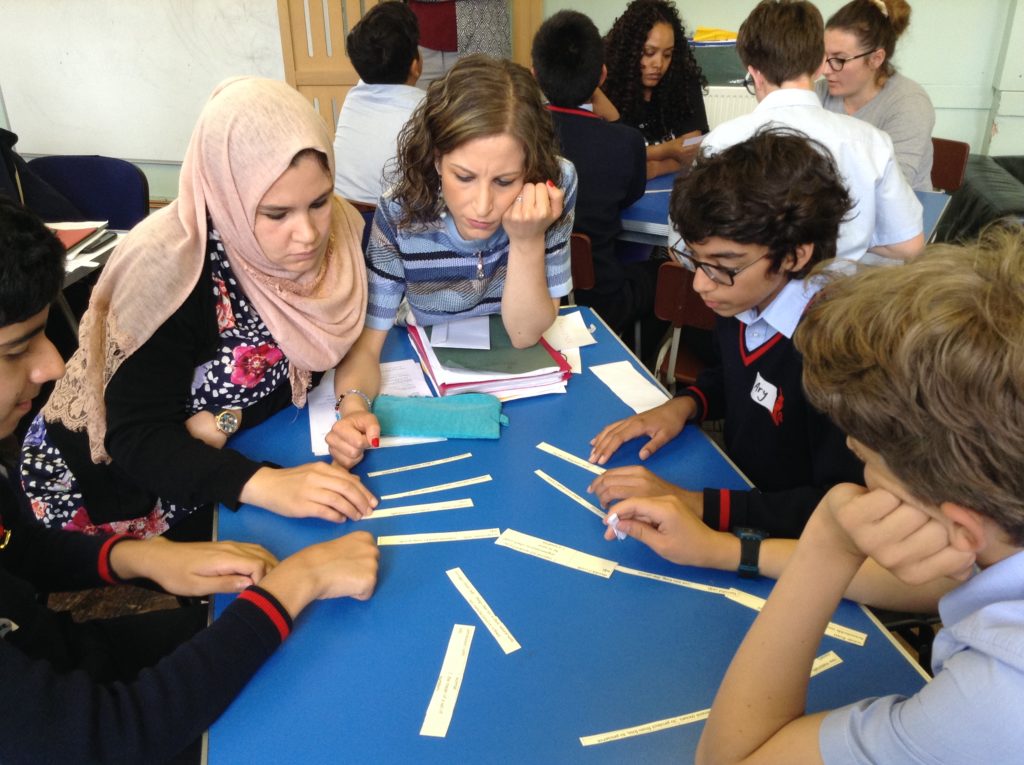
Achievements
Over this academic year (2019/20) our ESOL programme has:
- 103 students started in September 2019. This reduced slightly:
- Pre-Covid – 97 on roll, 94% retention
- Post-Covid – 90 finishers, 87% retention
- 9 courses running
- 160 study places across ESOL, Maths, IT and Childcare
- 54 ‘calculated result’ achievements (instead of exams this year)
- 30 students studied IT
- 33 children used the crèche
- 5 staff, 21 classroom volunteers, 10 student crèche volunteers, 1 student volunteer for our Elders Team
- 25 prospective students on the waiting list
- 6 students moving on to Further Education courses next academic year
Thanks to funding from the National Lottery Community Fund this year, we were able to add to our provision at lower levels, with both a Pre-Entry and an E1 class. We also ran 3 other levels of English. We ran two levels of maths class, IT and Introduction to Childcare. The latter was funded by Wandsworth Council’s Lifelong Learning Department. We had a well- attended crèche and student volunteers from the Childcare course were able to cover all extra need.
Going Online
The addition of IT to our curriculum has proved very successful. We bought 10 Chrome Books at the beginning of the academic year, so a total of 30 students had the opportunity to develop their digital skills. For some this was the first time they had used a computer. This proved to be timely with the onset of the Covid-19 Pandemic, as all provision had to be moved online in a matter of days. During Lockdown, we ran a survey with all the students to find out the scope of digital access and found the following:
Out of 97 Students:
1 – has access to their own computer.
33 – has access to a shared computer with anything up to 6 household member sharing it, but only:
11 – able to use for online classes because of shared use.
64 – accessing online learning and doing homework on a smart phone.
15 – no online presence at all.
It was not possible to run the Summer IT course because of Lockdown, but thanks to Wandsworth Lifelong Learning team being flexible we were able to change the provision to 1:1 support for individual students so that 12 students could learn skills with the technology they could access – ranging from sharing photos and documents on their phones, to setting parental controls on smart TV’s , and applying for courses at a local further Education college. This was an example if the way that ESOL at KLS tailors its provision and curriculum to the needs we are presented with.
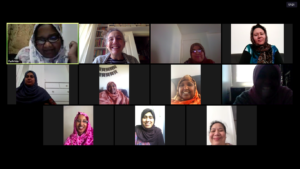
Read more here about what we’re doing to address digital inclusion in Wandsworth.
The impact of Lockdown
“I look forward to my classes on Zoom twice a week. I get to talk to other people from my family and I get to see all my lovely classmates and my lovely teacher. I also learn English and Maths!”
This was not a ‘normal’ year for our programme. Covid-19 interrupted us just when we were starting to prepare for assessment season. However, thanks to an amazing team of teachers – Fran Juckes (Manager), Sally Petch, Judith Rule, Faith Saunders and Gail Collingwood, and some very dedicated volunteers, provision was rapidly adapted to online learning through a variety of mediums – WhatsApp; Google Classroom; Zoom; 1:1 phonecalls and the good old postal system!
“Where it is not possible to adapt the assessment model, NOCN is informing centres, in line with the guidance published by Ofqual, that learners who have been unable to complete their qualification must be issued with a ‘calculated result’. This will be based on a on Centre-made assessment grade. NOCN will quality assure Centre-made assessment grades to issue learners with a calculated result. The calculated result will hold as much merit as other results issued to learners who have not been affected by the COVID-19 disruption.”
National Open College Network (NOCN) guidance for centre assessment grades – summer 2020
Assessment has come in the form of a ‘Calculated Result’, not exams as usual, because of the lockdown restrictions. We were not able to hold face-to-face exams as planned. Since KLS has a modest income, we took the decision early on to only enter students that we were sure of achieving and who had been able to engage in some form or other with online study. This has meant a lower quantity of exams entered, but a higher achievement rate.
- 37 students (38% of student roll) entering for one or more calculated result of assessment in ESOL Skills for Life; Functional Skills English; Functional Skills Maths; Certificate Vocational studies at Entry 3, Level 1 and level 2. This is done with NOCN (National Open College Network) as the examining body.
- 56 assessment entries in total
- 54 ‘calculated result’ achievements
“Before I came to KLS, I didn’t like education, I was frightened of it. Now I can’t wait to go to class and I realize I can learn. I really want to thank KLS for that.”
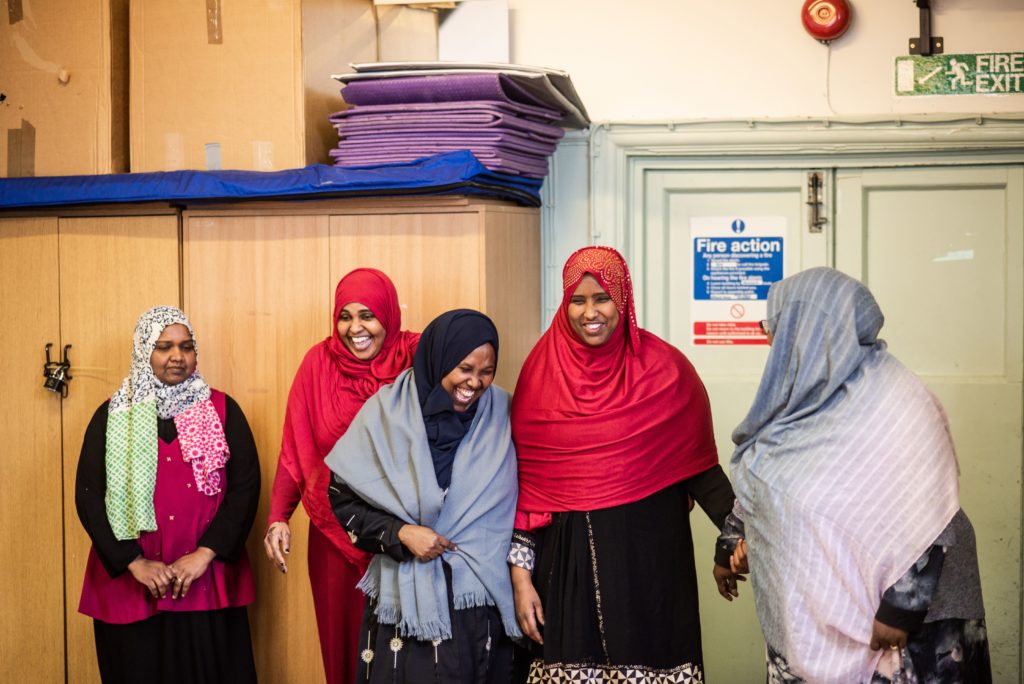
Member Story: Kaamla and the power of IT and photographs
Kaamla is from Afghanistan and came from a community where women were not allowed to go to school. Consequently, she grew up with no education and unable to read and write.
She came to the UK 25 years ago and has gradually learnt good literacy skills, but has low confidence in her abilities. This isn’t helped by living in an all-male household where her position is considered to be the one who tends the home and nothing else.
Kaamla is keen to learn IT skills, as she is aware of the possibilities that it will open up for her. Although her son is studying IT at university, he won’t let her anywhere near his computer or share his knowledge. She wanted to learn some simple things on her (very old) smartphone. We taught her to access Google classroom and how to edit homework documents. But the thing she most enjoyed was learning how to take photographs and to send them to her family in Afghanistan. This has opened up her world just a little bit!
Kaamla is not someone who smiles a lot, but the smile on her face at the end of that zoom session was a humble reminder of the reason why we love to be in education. She’s been sending me regular photos since.
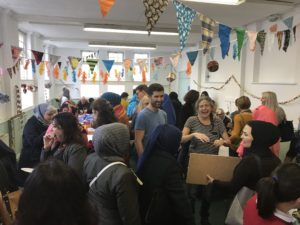
What has gone well this year
Student engagement has been fantastic
- Attendance and retention statistics reflect this. Pre-Covid: 93% retention and 83% attendance.
- Many students report enjoying learning for the first time in their lives.
- Many students express that they feel part of a new family and community at KLS.
- Many students say bringing the children to the crèche has given them two hours freedom to think about their own needs.
Student’s future plans
- 5 students volunteered as classroom assistants. Three of those are applying to Further Education to become Teaching Assistants in Primary education.
- 10 students volunteered in the crèche as part of their Early Years Studies. One has plans to start her own Early Years provision.
Online Engagement in Lockdown
Adaptability – Both the teachers and the students adapted to the new learning environment very quickly. A lot of time was spent either 1:1 or in small groups making sure everyone could engage with the technology with the devices they had at hand. Some were really resistant and anxious at first, but with the encouragement of patient and engaging teachers, everyone with access to technology grew in confidence over the months of Lockdown.
This will inform future planning. We need to prepare for the possibility of further online learning. September 2020 will be a month of small group work:
- Making sure all students in the department will have access to education.
- Making sure everyone has a fully functioning g-mail account, so that they can access materials on Google classroom.
- Learning how to engage with material by editing Google docs.
- Gaining confidence with Zoom for online face to face classes.
- Training Teachers in a wider variety of platforms.
We can see this as an opportunity for deepening Student engagement and greater inclusivity. For example, if a student has an ill child, they may still be able to access their learning from home.
Volunteers
Volunteers are the lifeblood of Katherine Low Settlement. We simply cannot operate our wide range of services without the support of our amazing team of dedicated volunteers. Extensive research has shown that whilst paid staff are vital to provide the consistency, stability and targeted skills necessary for a charity to function, it is through volunteers that our reach is extended, the quality of service enriched and community bonds strengthened.
Our current ESOL volunteers are a fabulous and diverse group of people who are doing high-quality work. Some are students themselves either giving something back or developing their English and childcare skills by volunteering in the crèche; others are local residents wanting to use their professional skills and expertise in an ESOL setting with refugees and other BAME communities. Most of the 21 ESOL teaching volunteers have an education and teaching background (existing or retired teachers) so they have the skills we need to deliver our ESOL programme. They act as classroom teaching assistants to our paid staff, providing one-to-one or small group support for students as needed.
Staff Retirement
Two of our excellent teachers have retired at the end of this academic year. Sally Petch (ESOL Teacher) and Gail Collingwood (Early Years Teacher) both found lockdown particularly stressful and were shielding due to personal reasons. They taught online throughout lockdown but felt at the end of the year that it was the right time to retire. Sally was our ESOL Manager for 4 years. She was instrumental in revamping our ESOL programme growing it from a scant 15 students to over 120. 18 months ago she stepped down as the Manager to focus on teaching and supporting Fran Juckes to step up and take on the mantel as our Head of ESOL. Fran has thrived in the role, making it her own. Sally feels the programme is in safe hands and prospering and can therefore retire.
Gail was one of our teachers 15 years ago when we were a Sure Start centre. So, it was great to re-employ her two years ago as our Early Years Teacher. She has loved being back, and our students have loved her teaching them. It’s sad to see them both go, but it is the right decision for them and we wish them the best of luck in their retirement. I’m sure they will be busier than ever!
Following feedback from our students we are not continuing our Early Years course next year, so do not need to replace Gail. We are currently recruiting for another ESOL teacher to start in September.
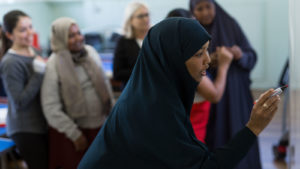
What hasn’t gone well this year
The challenge of the Coronavirus lockdown
The worst of times brings out the best in humanity and our teams are demonstrating this. Over the last few months, we’ve been responding, adapting and refocusing our work to meet the needs of local people during this Covid-19 crisis.
On 17th March 2020 we suspended our face-to-face services, sent staff/volunteers home, closed our community centre; and have gotten heavily involved in the wider coordination across Battersea and Wandsworth e.g. we’ve helped set up Battersea Coronavirus Angels (we’ve recruited 450 volunteers and supported nearly 500 vulnerable people so far: Mar-July’20); developed the BLSW11 Alliance Covid19 Grant Fund (£100k); and we’re working with Wandsworth Council and local charities to coordinate a strategic and practical response across the borough.
We’ve adapted our community services to support all our members over the telephone and online (e.g. supporting our most vulnerable elders with daily calls – more below), delivering ESOL (English) classes via Zoom/WhatsApp, supporting our Somali Women’s Group via WhatsApp, hosting a new Corona Homework Club for refugee young people. We’re providing practical and emotional support for all our staff and volunteers working at home.
Attendance & Retention
Our attendance and retention rates were good across our ESOL programme bar one group – Entry 1. This was for a variety of reasons – pregnancy (2); poor health (2); child sickness (3); Housing issues (2). But another reason was the way in which the group had been progressed. They had been assessed by a group of (experienced) volunteers, but in retrospect some students were not in the correct class.
As a result, we have learnt from this and will do two things next academic year:
- Standardise all assessment procedures
- This academic year there is going to be a speaking and listening group for some learners who avoided class because they lacked confidence in reading and writing. They are also low level. The idea is that they will spend the year really improving their verbal communication skills, so that they can return to an all modes classroom next year with improved confidence
Looking ahead to the next academic year 2020/21
From September 2020 we are plan to move our classes back into the classroom as much as we can – being safe, responsible and observing social distancing rules. We are risk assessing, timetabling, planning and using a healthy dose of common sense to do so. Most of our students are understandably apprehensive and nervous about returning to face-to-face classes (many are from vulnerable Covid-19 groups e.g. BAME) but we know from experience that this is the best environment to learn.
In discussion with our students we have agreed to run ‘real life’ classes for smaller groups (about 10 students physically in each class), whilst streaming them online to students at home. Every student will come into the centre at least once a week, with childcare being provided. We hope this will be the best of both worlds for our students – meet their learning and social needs, whilst being as safe as we can.
We will be monitoring and reviewing the situation weekly. We will adapt our plans and approach according to the government lockdown restrictions, and feedback from our students, staff and volunteers. We will keep you informed on the situation.
Contact
To find out more about ESOL programme please contact Fran Juckes, our ESOL Manager, on 020 7223 2845 and [email protected]
